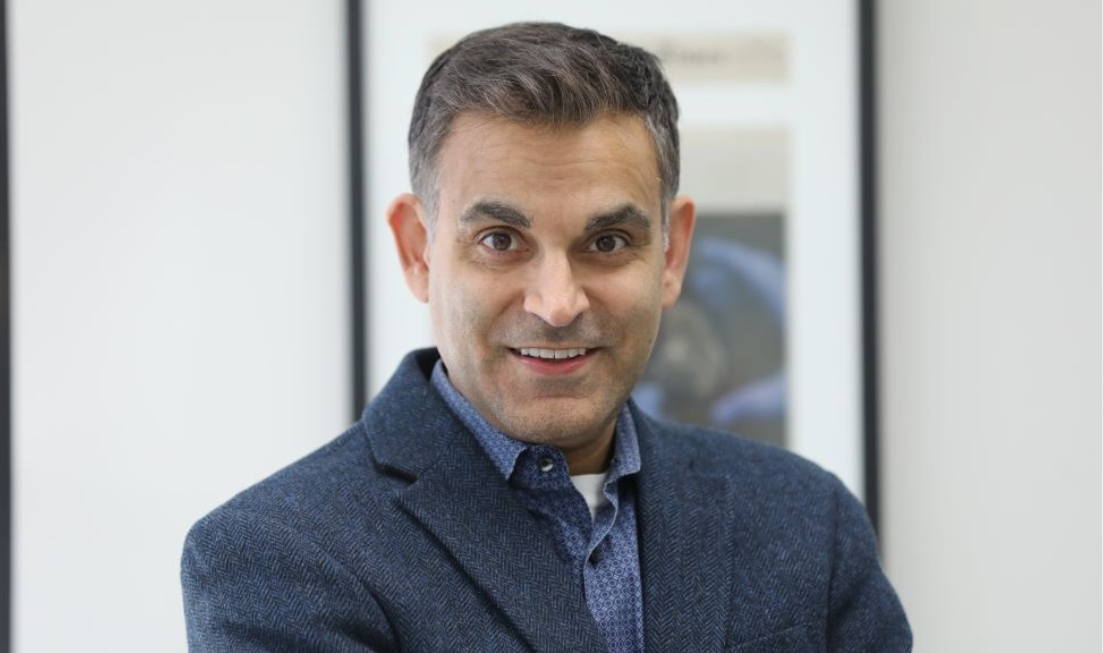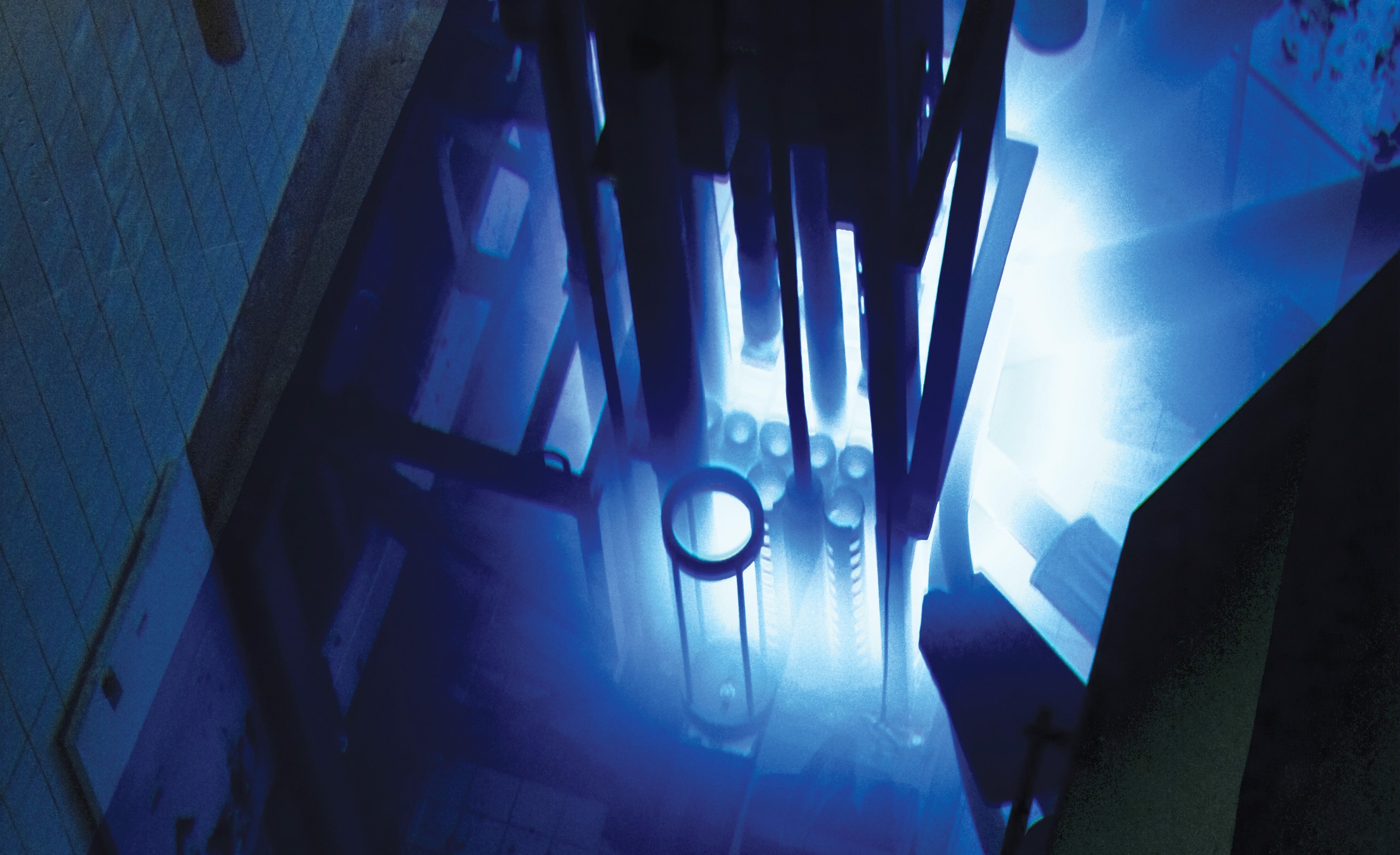Nuclear @ McMaster: Year in Review 2024
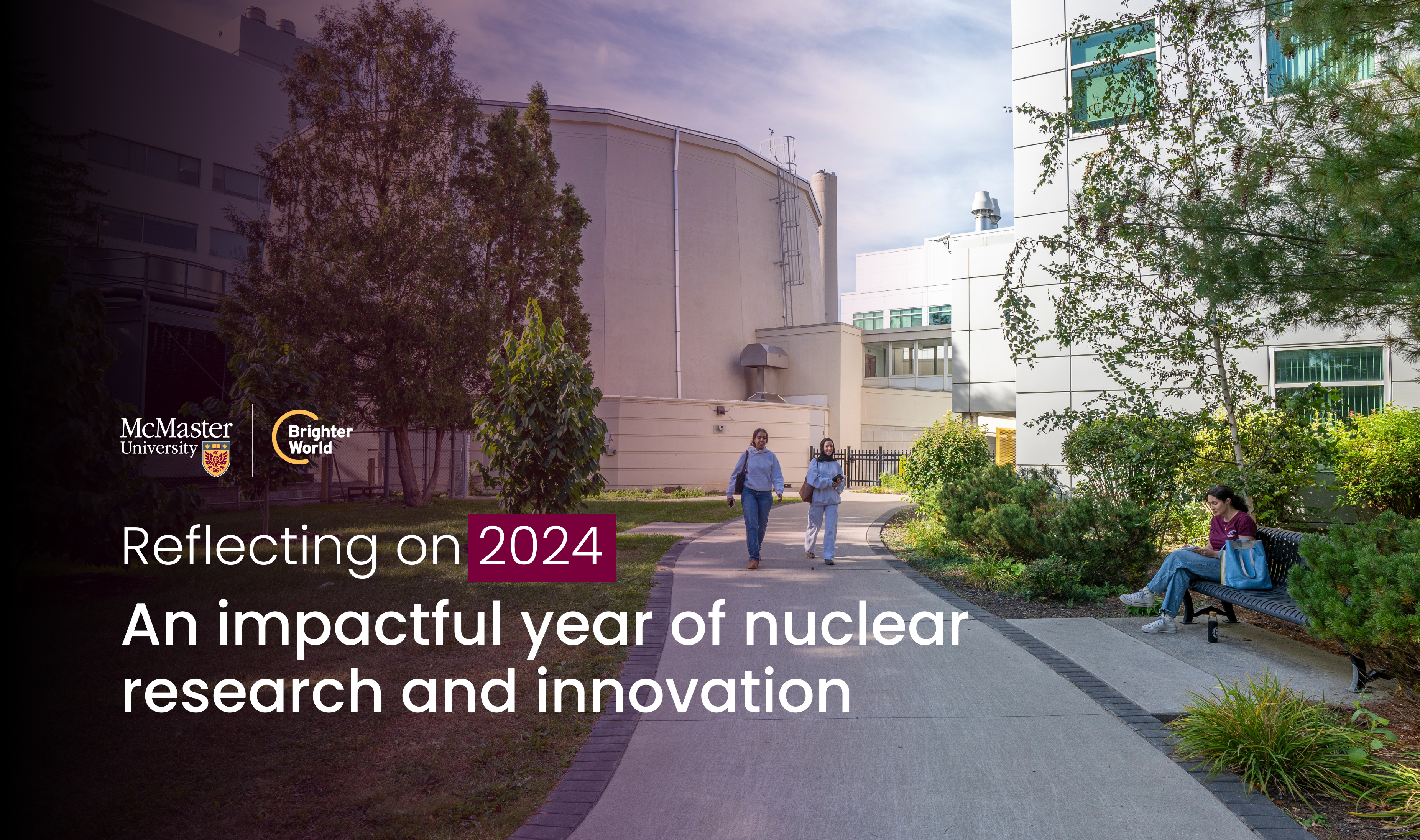
An impactful year of research and innovation at Canada’s Nuclear University
As 2024 comes to an end, we’re reflecting on the nuclear projects, partnerships and programs that made for an unforgettable year of research, education and innovation at Canada’s Nuclear University.
From celebrating historic milestones to advancing research in nuclear medicine, clean energy and materials to positioning our facilities for the future, McMaster is paving a path towards a healthier and more sustainable world powered by nuclear innovation.
Here are just a few of the nuclear stories that shaped our year.
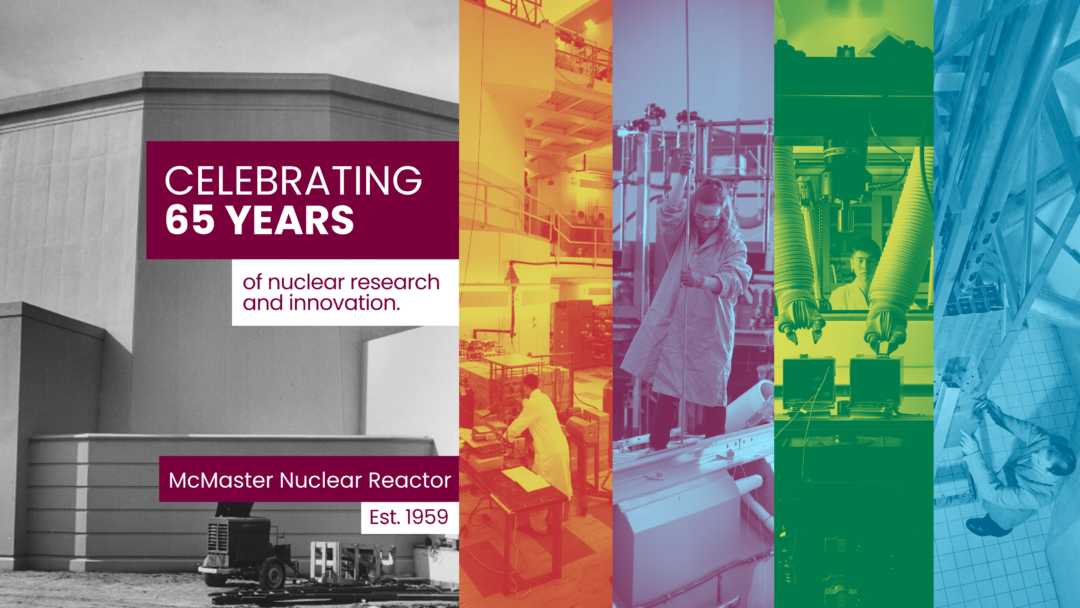
Celebrating 65 years of the McMaster Nuclear Reactor
Since its construction in 1959, the McMaster Nuclear Reactor (MNR) has driven groundbreaking discoveries in energy, medicine and materials; fueled job creation and the economy; and provided unique training opportunities for future generations of nuclear leaders.
Learn more about MNR’s ongoing contributions to science and society.
Celebrating 65 years of the McMaster Nuclear Reactor: Explore MNR's history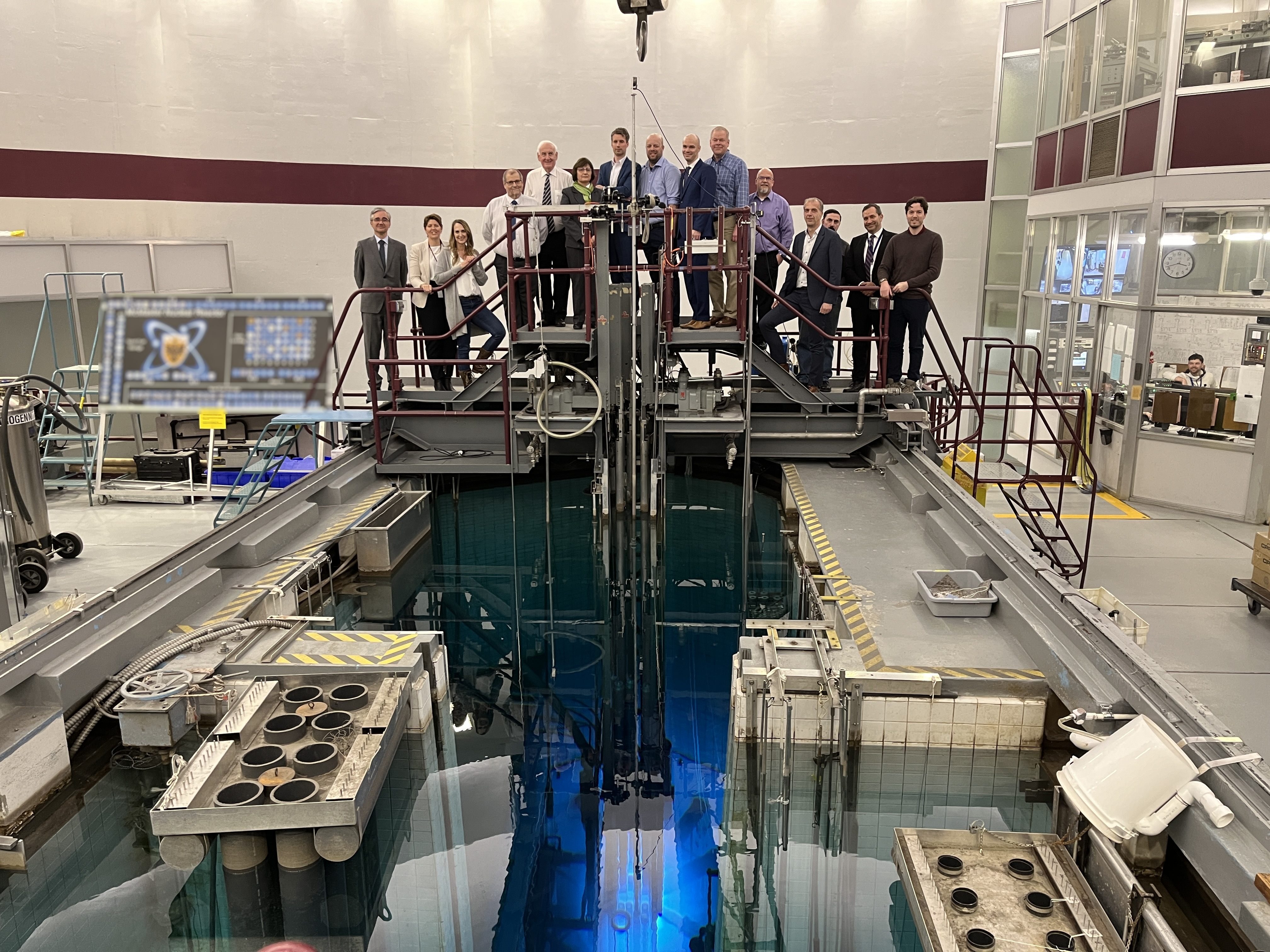
IAEA review of the McMaster Nuclear Reactor supports plans for expansion
McMaster welcomed a team of international nuclear experts to campus at the start of 2024 for an in-depth evaluation focused on the research, education and commercial utilization of MNR and its plans for expansion.
Led by the International Atomic Energy Agency (IAEA) as part of their Integrated Research Reactor Utilization Review (IRRUR) mission, the review team noted MNR’s exceptional utilization practices and shared several recommendations to enhance usage of the reactor, including through expanded education and training opportunities that can help prepare Canada’s future nuclear workforce:
“This transition may appear to be a marathon, but the world needs McMaster to sprint.”
IAEA review of the McMaster Nuclear Reactor supports plans for expansion : Read more about the review
McMaster and King’s College London partner to advance research and training in nuclear medicine
McMaster and King’s are working together to produce 94mTc — a radioisotope that can be used in PET scans of tissues and organs, to help diagnose cancer and heart disease, among others.
The partners also hosted the Next Generation in Nuclear Medicine workshop at McMaster, where graduate students and early career professionals participated in hands-on learning to strengthen their academic, technical and professional skills in nuclear medicine and molecular imaging.
McMaster and King’s College London partner to advance research and training in nuclear medicine : Read more about the workshop
New faculty drive nuclear research and education
McMaster welcomed several new faculty members driving discoveries in nuclear. Markus Piro and Michael Welland joined McMaster as associate professors of engineering physics in 2024. Both bring nuclear energy expertise in academia and industry to their new roles, as they lead research to advance clean, safe and reliable nuclear energy technologies – including small modular reactors (SMRs).
New faculty drive nuclear research and education: Meet McMaster's SMR researchers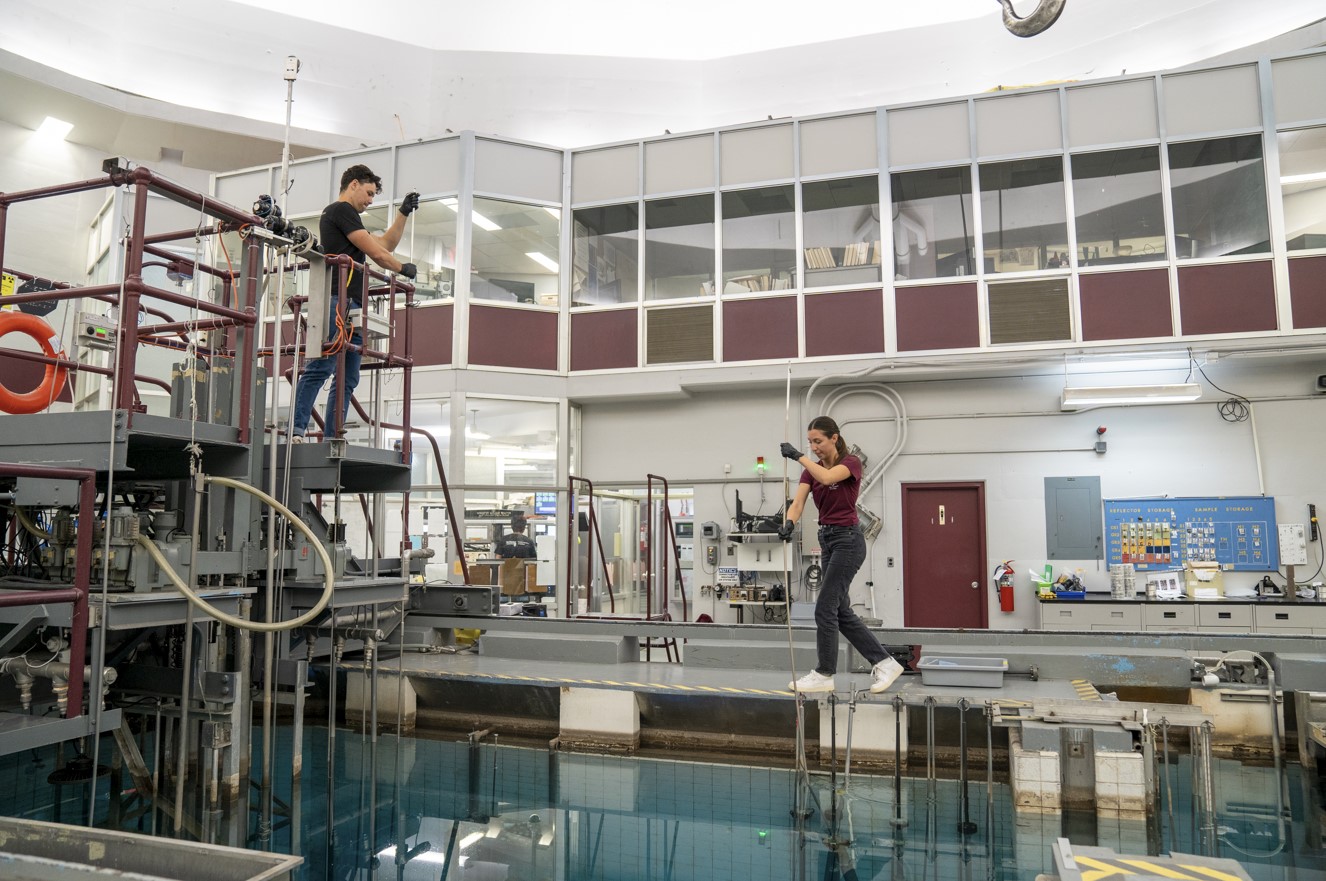
McMaster Nuclear Reactor transitions to 24/5 operations
On March 18, 2024, MNR officially expanded operations to 24 hours a day, 5 days a week. Reactor and health physics staff are working around the clock to increase production of life-saving medical isotopes, advance research in clean energy and materials science, and provide more student learning opportunities.
The new schedule is part of McMaster University’s $25M project to optimize operations of the reactor and is supported by $13.6M in funding from our federal and provincial partners.
McMaster Nuclear Reactor transitions to 24/5 operations: Watch the video
McMaster researchers receive $2.6 million for small modular reactor research
Joey Kish and Dave Novog from the Faculty of Engineering received a total of nearly $2.6 million from the Natural Sciences and Engineering Research Council of Canada (NSERC) and Natural Resources Canada (NRCan) to lead research on small modular reactors – a key technology in Canada’s clean energy transition.
McMaster researchers receive $2.6 million for small modular reactor research: Read more about their projects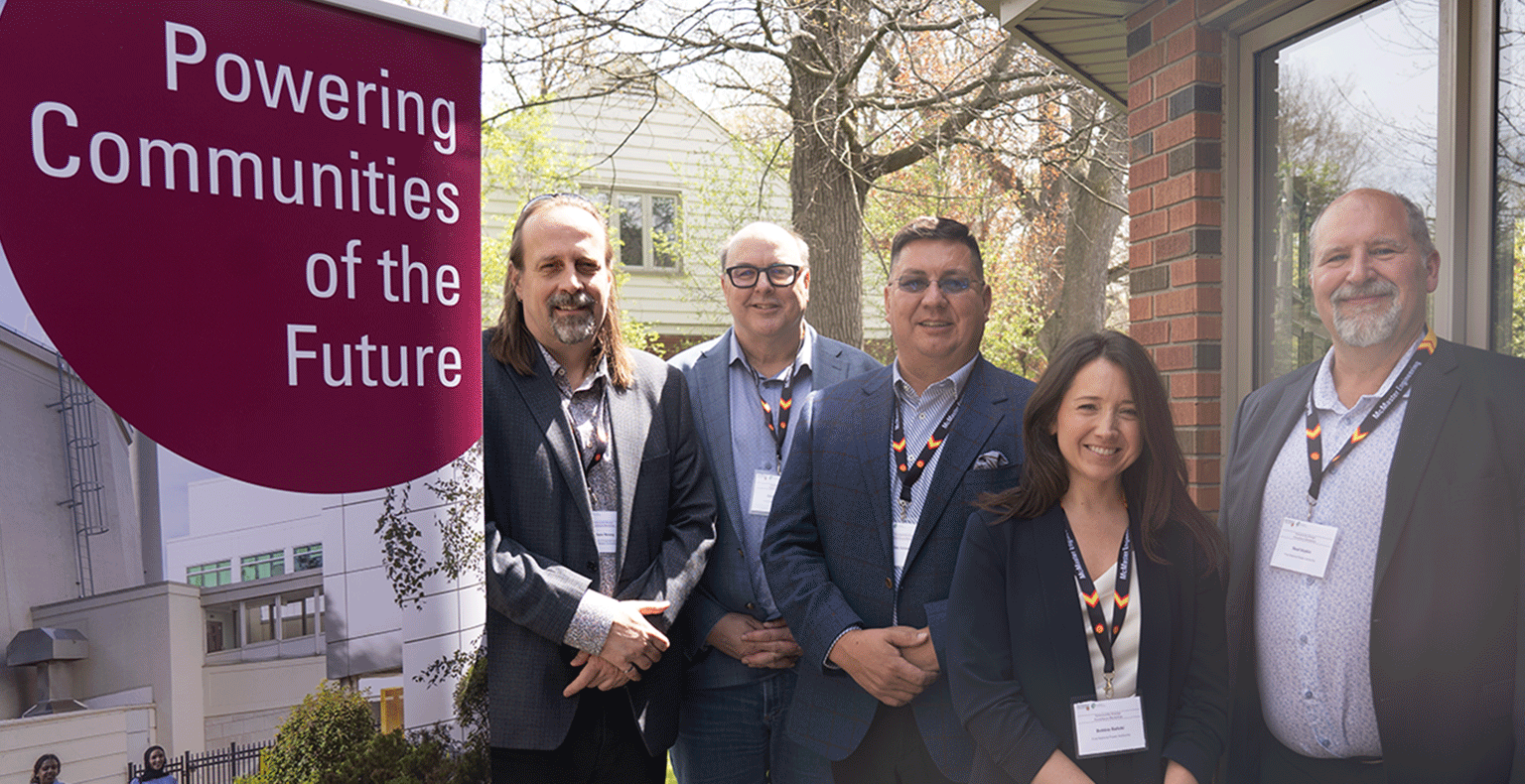
Community Energy Transition Workshop builds dialogue on energy security in northern and remote communities
As Canada and First Nations look to a future of achieving safe, reliable and zero-emission energy, collaboration with residents from northern and remote communities is key to exploring viable and long-lasting solutions. The need to build relationships and mutual understanding inspired a two-day Community Energy Transition Workshop at McMaster University in May.
Community Energy Transition Workshop builds dialogue on energy security in northern and remote communities: Read more about the workshop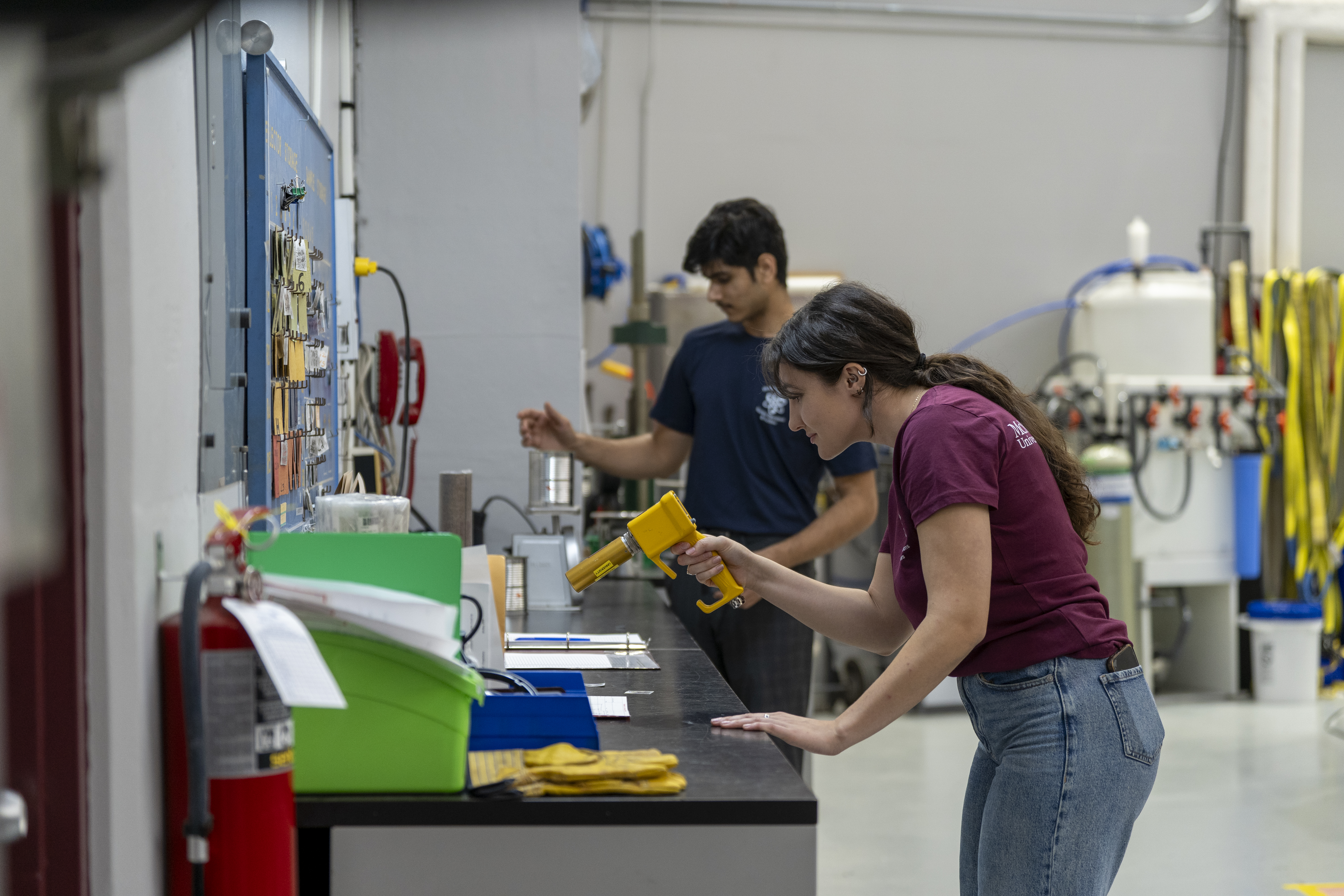
McMaster Nuclear Reactor secures 20-year licence renewal for continued innovation
In June, the McMaster Nuclear Reactor was relicensed for 20 years – a historic milestone for Canada’s most-powerful nuclear research reactor. Granted by the Canadian Nuclear Safety Commission (CNSC), the licence is the longest issued to MNR in the reactor’s history and will ensure MNR can continue to support ground-breaking research in health, clean energy and materials.
McMaster Nuclear Reactor secures 20-year licence renewal for continued innovation : Read more about the renewal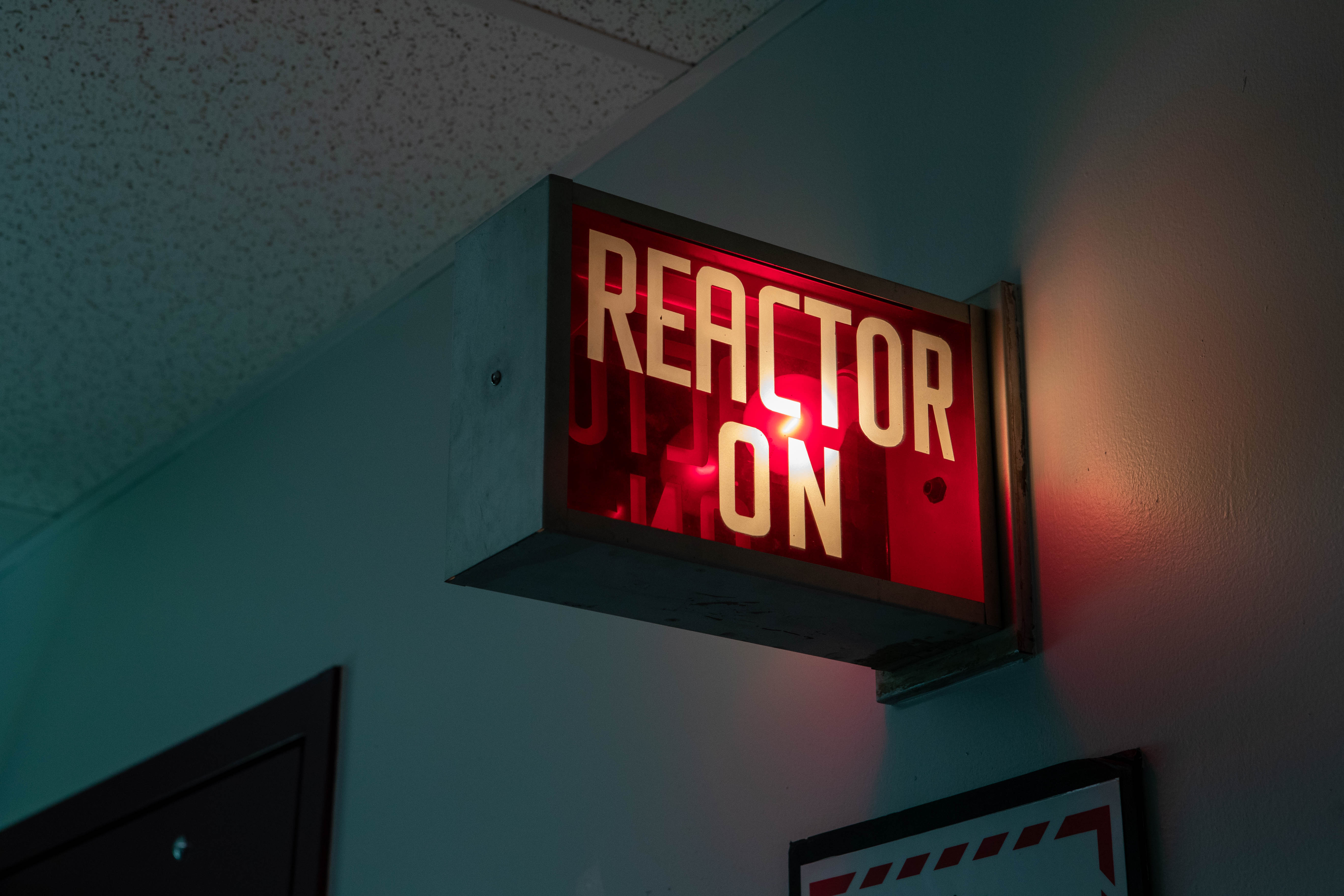
McMaster participates in pan-Canadian initiatives for nuclear innovation
In 2024, McMaster joined national partners in two initiatives designed to strengthen Canada’s nuclear future. McMaster is part of the secretariat, alongside Atomic Energy of Canada Limited (AECL) and Canadian Nuclear Laboratories (CNL), to create a framework for the deployment of micro-reactors in Canada. McMaster, AECL, CNL and NRCan have also formed a secretariat with the goal of creating of a new Canadian Multi-Purpose Research Reactor.
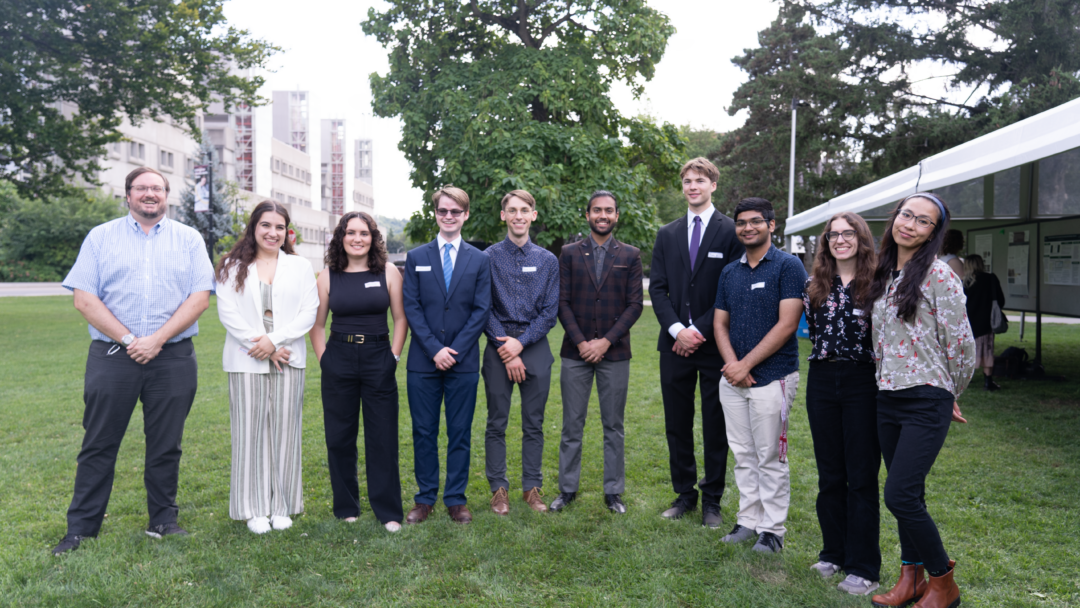
Undergrads gain nuclear research experience in summer program
Twelve McMaster undergraduate students gained hands-on nuclear research experience this summer as part of the CNL Nuclear Undergraduate Research Experience program.
During the eight-week program, students spent time at McMaster and CNL’s nuclear facilities, where they conducted research that has the potential to shape how we power our homes, diagnose and treat disease and study materials at the atomic level. The program’s 2024 cohort included seven students from the Faculty of Engineering and five from the Faculty of Science.
Undergrads gain nuclear research experience in summer program : Read more about the program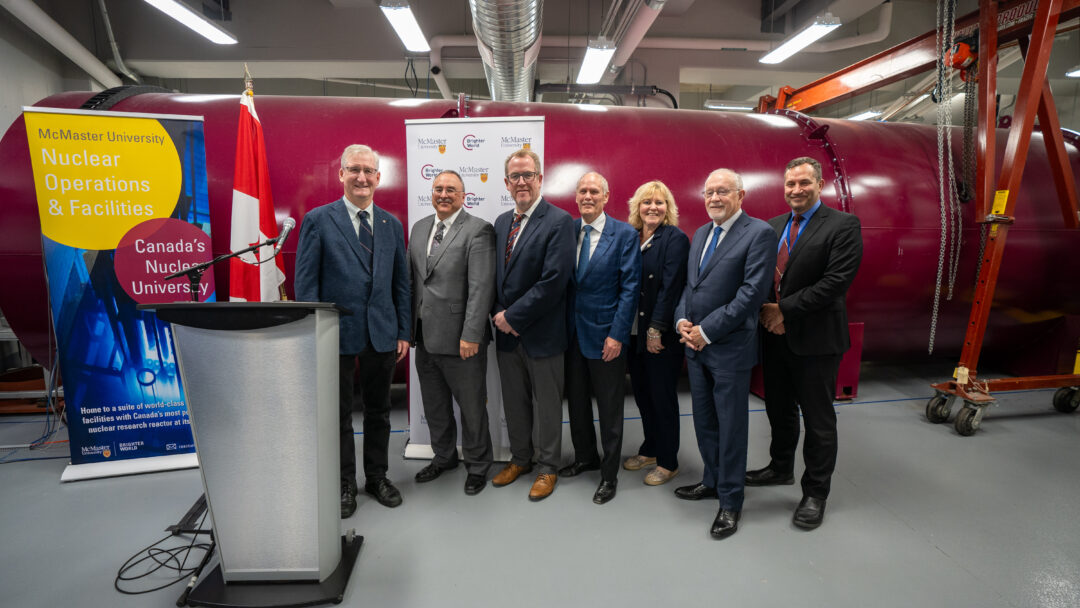
McMaster celebrates launch of new Canadian Neutron Beam Laboratory
In November, McMaster University and Neutrons Canada celebrated the launch of the Canadian Neutron Beam Laboratory (CNBL) — a new suite of facilities built to advance neutron beam research in Canada.
Leveraging existing infrastructure at McMaster in addition to new instruments, the CNBL will support research and development in a wide range of fields — including clean energy technologies, superconductors, materials for advanced manufacturing, biomaterials for understanding and combating disease, and quantum materials that could enable breakthroughs in information technology devices.
McMaster celebrates launch of new Canadian Neutron Beam Laboratory: Read more about CNBL



